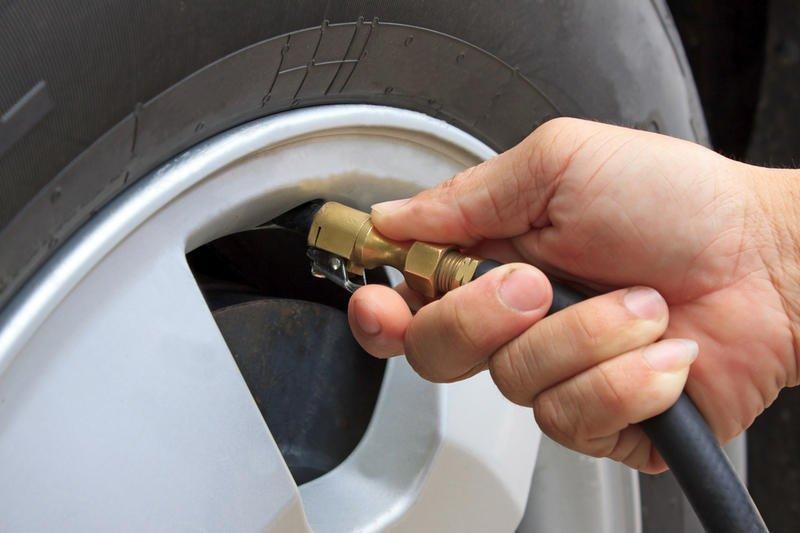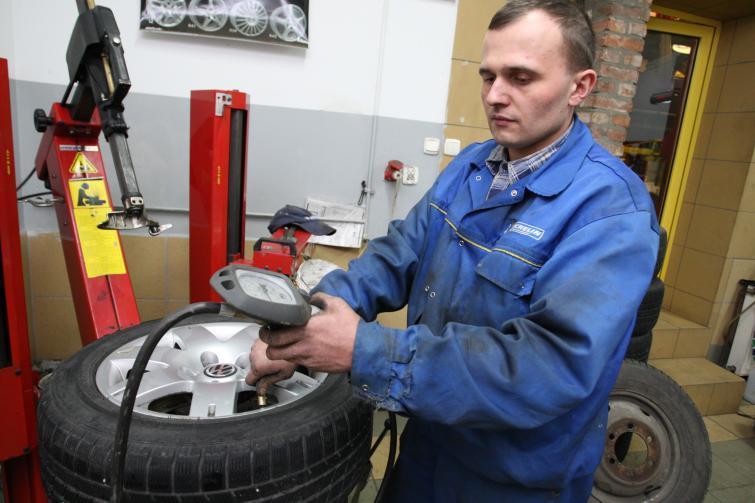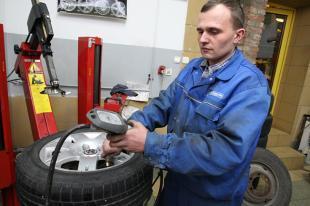
Filling tires with nitrogen only pays off if you drive a lot
 Many tire shops can fill tires with nitrogen. Proponents of this method claim that it maintains tire pressure longer and keeps the rim from rusting. Opponents argue that this is a deception of customers for an additional service.
Many tire shops can fill tires with nitrogen. Proponents of this method claim that it maintains tire pressure longer and keeps the rim from rusting. Opponents argue that this is a deception of customers for an additional service.

The benefits of inflating tires with nitrogen have been known for over 40 years. Nitrogen has long been used in commercial vehicle tires (especially those operating in harsh environments). Later, it was also used in motorsports until it became widespread. However, not all car users know that a tire can be filled with nitrogen.
Moisture barrier
ADVERTISING
Nitrogen is the main component of air (more than 78%). It is an odorless, colorless and, most importantly, inert gas. This means that it does not tolerate various chemicals, including water (water vapor), which are harmful to tires and rims.
See also: Winter tires - check if they are roadworthy
It's all about moisture. Air is sensitive to temperature changes. This, in turn, leads to the accumulation of moisture inside the tire. Thus, the inside of the rim is exposed to corrosion. This problem does not occur when the tire is filled with nitrogen because this gas is not susceptible to moisture.
Stable pressure
This is not the only benefit of nitrogen. The aforementioned resistance of this gas to temperature changes ensures a stable nitrogen pressure in the tire. In other words, the tire does not flutter. Therefore, there is no need to inflate tires frequently. You can limit yourself to periodically checking tire pressure.
– Adequate tire pressure ensures proper traction and driving stability. A drop in tire pressure is a natural phenomenon, so it is necessary to regularly measure the pressure, says Tomasz Młodawski from Michelin Polska.
For tires that are inflated with air, we recommend checking the pressure every two weeks and before long trips.
Compared to air, nitrogen maintains tire pressure three times longer. It also affects the fact that when driving in the heat, we do not risk blowing a tire.
On the other hand, permanent straightening tires reduce rolling resistance, which contributes to longer tire life and lower fuel consumption. It also improves traction.
See also: “Four winter tires are the basis” – advises the best rally driver in Poland
Pressure below the nominal pressure by 0,2 bar increases rubber wear by 10%. With a lack of 0,6 bar, the life of the tires is halved. Excessive pressure has a similar negative effect on tires.
You can inflate tires with nitrogen at many tire shops. The cost of such a service is about 5 PLN per wheel, but many workshops have promotions and, for example, we will pay 15 PLN for inflating all wheels.
Nitrogen deficiency
True, nitrogen maintains the correct pressure in the tires for a long time, but after a while it happens that the tire needs to be refueled. And this is the main disadvantage associated with the use of this gas, because you need to get to the appropriate service that provides such services.
See also: All-season tires lose to seasonal tires - find out why
According to the specialist
Jacek Kowalski, Slupsk Tire Service:
– Nitrogen in tires is a good solution for drivers who drive a lot, such as taxi drivers or sales representatives. Firstly, they don't have to check tire pressure too often, and secondly, high mileage benefits in terms of reduced tire wear and fuel consumption. On the other hand, it makes no sense to pump nitrogen into chambered tires. In this case, the gas is not in direct contact with the rim, so the advantages of nitrogen corrosion protection are out of the question. It is simply unprofitable to fill such tires with this gas.
Wojciech Frölichowski
ADVERTISING